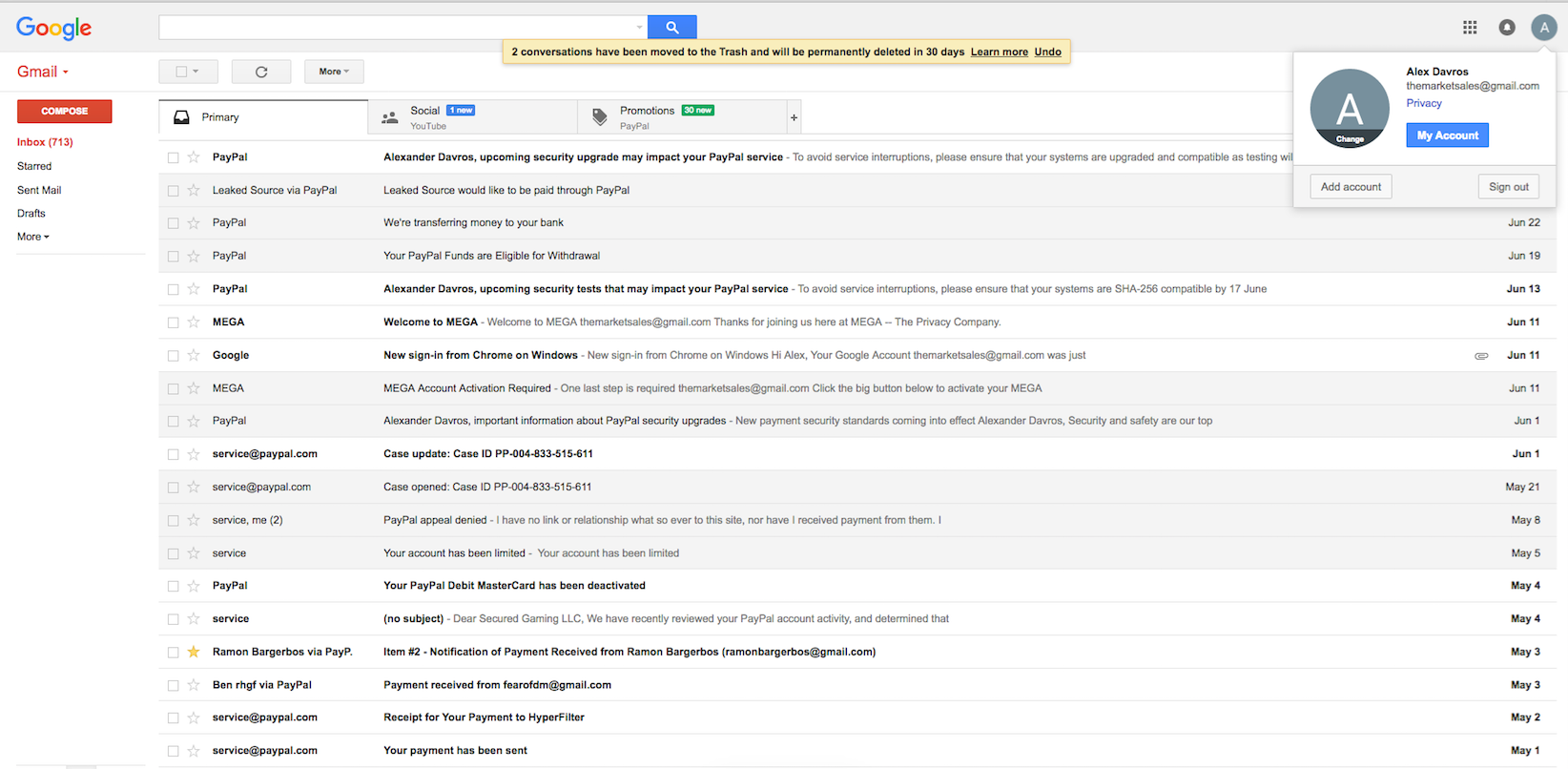
Gmail Database Leak Password Protected 150GB
This is perhaps the biggest and most comprehensive email database I have ever reported. On February 25th, 2019, I discovered a non-password protected 150GB-sized MongoDB instance. 800+ Million Emails Leaked Online by Email Verification Service.
Just enter your email and well check to see if any accounts linked to it have been compromised. It follows similar leaks of account data for popular Russian web services.“This is not some kid sitting at home, it does not look like something a bored young man would do in his spare time." Photo: ShutterstockFind out with Avast Hack Check. A database of what appears to be some 5 million login and password pairs for Google accounts has been leaked to a Russian cyber security internet forum.

When a user connects to a website, it creates a small file in the browser that is a reference to the fact that the identification process has been completed successfully and there is no need to enter login information again. There was a mark stating if the login details were correct or not."The malicious database was revealed on both Calcalist and the " Cybercyber"Podcast (Hebrew) hosted by Rotem and Ido Kenan.Along with the passwords, “session cookies” were also stored in the database. “The criminals took the passwords they stole and checked if it was possible to connect with them. "I identified a server that collected all the stolen information, and performed information verification processes," Rotem explained.

You can see the user and what accounts he or she has in different places. "There are victims from all over the world - Far East, North America, South America, Europe, Africa - there was no geographic targeting against Israel, and whatever the users kept as passwords, was available to me: banking, medical services, security services, porn websites, email services, and organizations’ inner systems. Even so, Rotem managed to download 2.5 million passwords, which provided insights into the identities of the victims.
"Now there is nothing on the IP address where it was available, so they may have replaced a server or blocked it well. "It is difficult to say whether it was dropped from the network or access to it was blocked," he said. "The employee at the company kept the password on a computer to which he apparently downloaded the malware."The database disappeared from the net in early June, not long after Rotem found it. "This is a system in which very sensitive files are stored, and with the stolen login information it was possible, allegedly, to access them," Rotem explained. Rotem also identified Pentagon staff and government employees from around the world in the database.One of Rotem's most disturbing discoveries in this database was a password for the "safe" of a well-known company in the defense industry. The largest rate of victims, 11.35%, came from the U.S., followed by Brazil (10.9%), India (9.4%), Germany (6.64%), and the UK (4.89%).Regarding Israel, Rotem identified thousands of local victims, many of which had information and passwords for governmental and defense industry networks ("it was easy to identify them because their email was with the gov.il extension or included their company name").
We recommend that browser-users be careful and download extensions only from official sources."Tom Alexandrovich of the Israel National Cyber Directorate added that "we have recently set up a new team whose goal is to be one step ahead of attackers - to identify vulnerabilities before malicious agents reach them. We also contacted the credit companies, banks, health providers and everyone handled it and reset the stolen passwords."Working with Israel’s National Cyber Directorate and FacebookIsrael’s National Cyber Directorate confirmed the details stating: "The issue has been reported and addressed with the institutions that were identified by their usernames, and guidelines were provided." The directorate’s response also stated that "From our examination, the information was collected in 2019 from private sites visited by private users. They contacted the people, tried to check if the information was used, and reset passwords. "They took care of it and took it seriously.



 0 kommentar(er)
0 kommentar(er)
